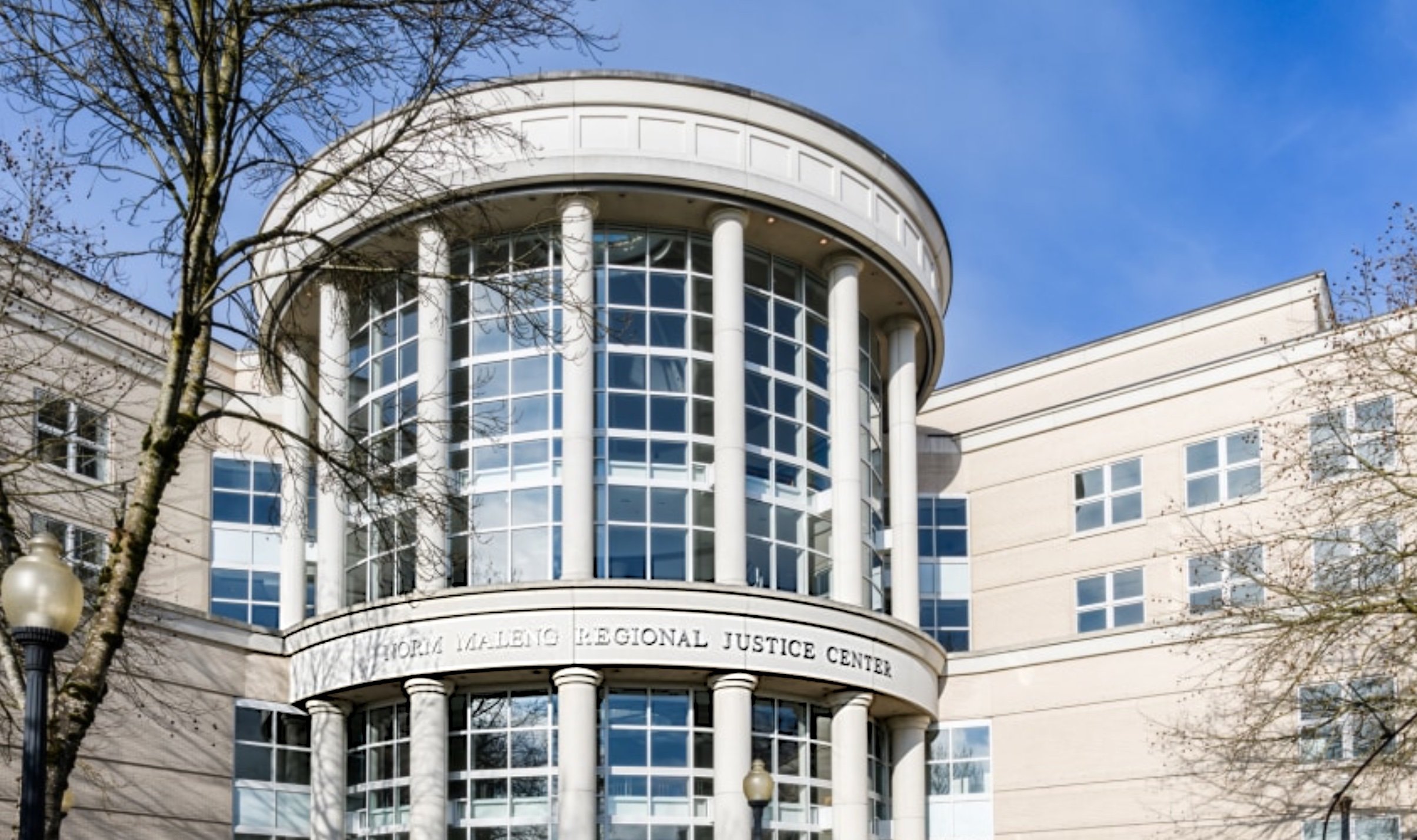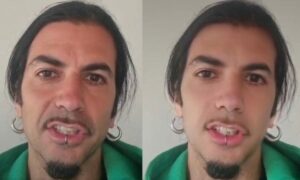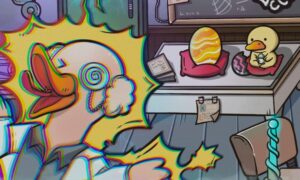
A judge in King County Superior Court has made it illegal to introduce artificial intelligence (AI)-enhanced video as evidence in court.
A state judge in Washington supervising a triple murder case prohibited the use of artificial intelligence-enhanced video as evidence in a decision that experts suggested might be the first of its kind in a US criminal court.
The attorneys for Joshua Puloka, the man charged with killing three people after opening fire outside a Seattle bar in 2021, reportedly wanted to present a machine-learning-enhanced cellphone video as evidence.
Also read: South Korean Job Seekers in a Fix as Firms Penalize AI Resumes
The fatal shooting was captured on mobile footage, which Puloka’s attorneys enhanced with artificial intelligence (AI) by hiring a man with experience in creative video production.
However, the King County Prosecutor’s Office claims that forensic specialists examined the AI-enhanced version of the film and discovered visual data that was absent from the original.
“Washington state judge blocks use of AI-enhanced video as evidence in possible first-of-its-kind ruling”https://t.co/egc23leWbd
— Peter Henderson (@PeterHndrsn) April 3, 2024
The decision
Judge Leroy McCullogh of King County Superior Court signed the decision on Friday. The ruling characterized the technology as novel and stated that it uses “opaque methods to represent what the AI model ‘thinks’ should be shown.”
The judge wrote in the ruling that was posted to the docket Monday, “This Court finds that admission of this Al-enhanced evidence would lead to a confusion of the issues and a muddling of eyewitness testimony, and could lead to a time-consuming trial within a trial about the non-peer-reviewable-process used by the AI model,”.
The decision is made at a time when artificial intelligence is rapidly developing, its applications are becoming more widespread on social media and in political campaigns, and state and federal lawmakers are debating the possible risks associated with the technology.
According to court documents, the attorneys for a man who is suspected of opening fire outside a bar in the Seattle area in 2021, killing three people and wounding two, had pushed to use machine learning software to enhance cellphone footage.
No previous case law
In a February filing in King County Superior Court, the case’s prosecutors stated that they could not find any prior legal precedent in the United States permitting the use of such technology in a criminal court. According to Jonathan Hak, a Canadian lawyer and solicitor who specializes in image-based evidence both domestically and internationally, this is the first instance that he is aware of a criminal court providing input.
I never conceived of the idea that law enforcement could potentially use AI to “plant” evidence on defendants. Keep an eye on this!
“Washington state judge blocks use of AI-enhanced video as evidence in possible first-of-its-kind ruling” https://t.co/ejnXssPYdU
— J. White, JD: Cofounder of Hood Medicine (@PoliticalSphinx) April 2, 2024
The 46-year-old defendant, Joshua Puloka, has claimed self-defense in the killings that occurred on September 26. According to a court filing from his attorneys in February, he was attempting to defuse a violent situation when he was attacked, and gunfire broke out.
According to the filing, Puloka opened fire again, killing innocent bystanders. A probable cause statement said that the man who is suspected of assaulting Puloka was also shot and killed.
The mobile video showed the deadly altercation. According to the prosecutors’ filing, Puloka’s attorneys sought the assistance of a man with experience in creative video production and editing but who had not previously handled a criminal case to improve the video.
Additionally, the program he used was created by Texas-based Topaz Labs, which claims in the filing that film studios and other creative professionals use it to “supercharge” video.
- SEO Powered Content & PR Distribution. Get Amplified Today.
- PlatoData.Network Vertical Generative Ai. Empower Yourself. Access Here.
- PlatoAiStream. Web3 Intelligence. Knowledge Amplified. Access Here.
- PlatoESG. Carbon, CleanTech, Energy, Environment, Solar, Waste Management. Access Here.
- PlatoHealth. Biotech and Clinical Trials Intelligence. Access Here.
- Source: https://metanews.com/ai-enhanced-video-banned-in-washington-court-murder-case/
- :has
- :is
- :not
- 11
- 2021
- 26%
- 7
- a
- About
- absent
- According
- After
- again
- AI
- also
- an
- and
- any
- applications
- ARE
- AREA
- artificial
- artificial intelligence
- Artificial intelligence (AI)
- AS
- Assistance
- associated
- At
- attempting
- aware
- banned
- bar
- BE
- becoming
- Blocks
- both
- Broke
- but
- by
- Campaigns
- Canadian
- captured
- case
- Cause
- characterized
- charged
- claimed
- claims
- cofounder
- conceived
- confusion
- could
- county
- Court
- Court Filing
- created
- Creative
- Criminal
- data
- debating
- decision
- defendants
- developing
- discovered
- documents
- domestically
- enforcement
- enhance
- enhanced
- evidence
- experience
- experts
- eye
- February
- Federal
- Filing
- Film
- Find
- finds
- Fire
- firms
- First
- Fix
- For
- Forensic
- Friday
- from
- had
- he
- Hiring
- his
- hood
- HTTPS
- idea
- Illegal
- improve
- in
- innocent
- input
- instance
- Intelligence
- internationally
- introduce
- issues
- IT
- ITS
- JD
- Job
- jonathan
- joshua
- jpeg
- judge
- Keep
- killing
- Kind
- King
- Korean
- Law
- law enforcement
- lawmakers
- lawyer
- lead
- learning
- Legal
- Legal Precedent
- machine
- machine learning
- made
- man
- Media
- medicine
- methods
- might
- Mobile
- model
- Monday
- more
- murder
- never
- novel
- occurred
- of
- Office
- on
- opened
- opening
- original
- Other
- out
- outside
- People
- Peter
- plato
- Plato Data Intelligence
- PlatoData
- political
- possible
- posted
- potentially
- Precedent
- present
- previous
- previously
- Prior
- probable
- Production
- professionals
- Program
- prohibited
- prosecutors
- providing
- pushed
- rapidly
- Read
- reportedly
- represent
- risks
- ruling
- Said
- Seattle
- September
- shooting
- shot
- should
- showed
- shown
- signed
- situation
- Social
- social media
- Software
- sought
- specialists
- specializes
- State
- stated
- Statement
- States
- studios
- such
- superior
- Technology
- testimony
- that
- The
- they
- this
- three
- time
- time-consuming
- to
- trial
- Triple
- true
- two
- United
- United States
- us
- use
- used
- uses
- version
- Video
- visual
- wanted
- was
- washington
- What
- when
- which
- white
- WHO
- widespread
- with
- within
- would
- wrote
- zephyrnet













